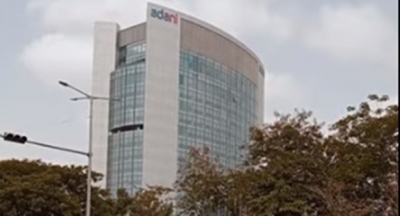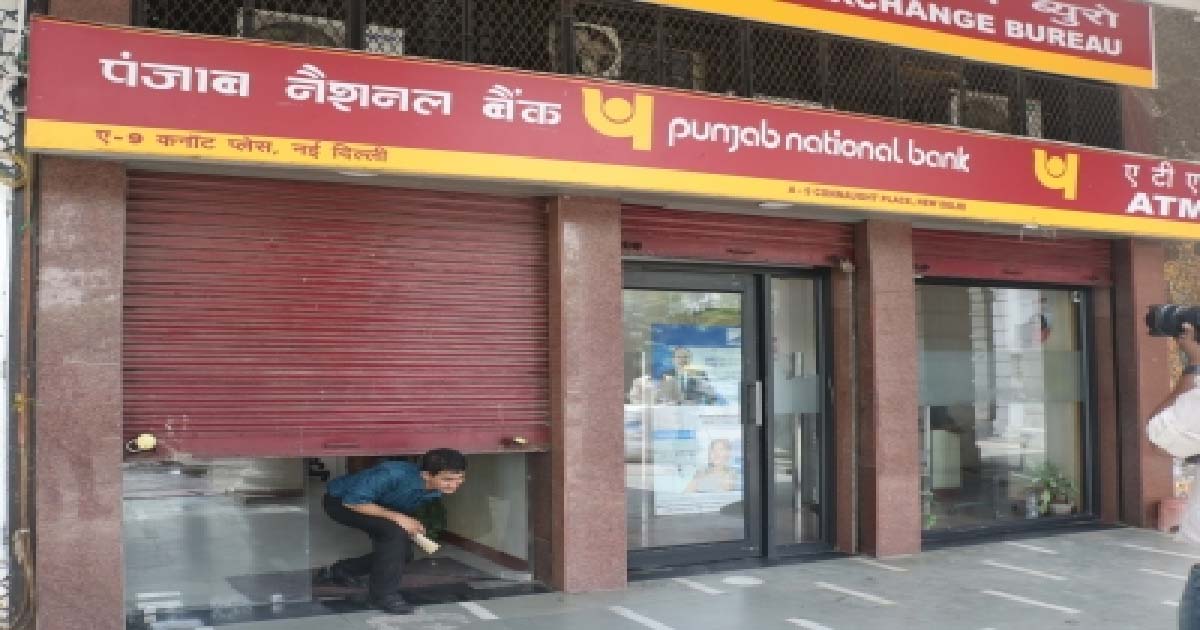Business
Adani Group hits back with detailed responses to Hindenburg’s unsubstantiated accusations

On Sunday, Adani Group responded to unsubstantiated allegations and misleading narrative peddled by Hindenburg Research at length in an over 400-page response backed by relevant documents.
Adani Group’s response also raises the questions against the ulterior motives and modus operandi of Hindenburg that has conveniently ignored the Indian judiciary and regulatory framework.
The detailed response from Adani Group covered its governance standards, credentials, creditworthiness, best practices, transparent conduct, financial and operational performance and excellence.
The Hindenburg report has been made with a clear intent to profiteer at the cost of our shareholders and public investors. Its report is neither “independent” nor “objective”. It is a manipulative document that is rife with conflict of interest and intended only for creating a false market in securities to book wrongful gain, which clearly constitutes securities fraud under Indian law.
Of the 88 questions posed by Hindenburg, it is pertinent to note that 68 refers to the matters that have already been duly disclosed by Adani Group companies in their respective annual reports, offering memorandums, financial statements and stock exchange disclosures from time to time. Sixteen out of 20 questions are pertaining to public shareholders and their sources of funds, while the balance four are simply baseless allegations.
Needless to say that Hindenburg has created these questions to divert the attention of its target audience while managing its short trades to benefit at the cost of investors. The report claims to have undertaken a “2-year investigation” and “uncover evidence”, but comprises nothing other than selective and incomplete extracts of disclosed information which has been in the public domain for years.
“We take serious objection to Hindenburg that chose to mislead the investors, watchdogs and policy makers at a time when Adani Group has launched country’s largest FPO. Adani Group is deeply committed to its stakeholders, and it is thankful to them for standing with us over the past 30 years. Shockingly, Hindenburg Research’s attack on the trust of Adani Group’s stakeholders undermines its commitment for the ‘Growth with Goodness’,” Adani Group said.
Hindenburg Research has come up with a document covering selective and twisted extracts of already disclosed information to raise questions in the minds of Indian and global investors to mislead them about Indian growth story. It is an attack on the trust of Adani Group’s stakeholders undermines its commitment for the ‘Growth with Goodness’.
Adani Portfolio companies have successfully and repeatedly executed an industry beating expansion plan over the past decade. While doing so, the companies have consistently de-levered with portfolio net debt to EBITDA ratio coming down from 7.6x to 3.2x, EBITDA has grown 22 per cent CAGR in the last 9 years and debt has only grown by 11 per cent CAGR during the same period.
Equity Injection in the Adani Portfolio Adani Portfolio has raised $16 billion equity under a systematic capital management plan for all the Portfolio companies over the last 3 years as a combination of primary, secondary and committed equity from marquee investors like TotalEnergies, IHC, QIA, Warburg Pincus etc.
The portfolio has developed deep bank relationships with institutions such as JP Morgan, Bank of America Merrill Lynch, Citi, CreditSuisse, UBS, BNP Paribas, Deutsche Bank, Barclays, Standard Chartered, MUFG, DBS and Emirates NBD among others. This has strengthened access to diverse funding sources and structures.
Adani Portfolio companies have demonstrated successful syndication of the banking transactions, resulting in de-risking of the banks in volatile markets. Case in point being Holcim’s Indian cement business acquisition with international banks, and Navi Mumbai Airport and Kutch Copper refinery with domestic banks Adani Group companies also have a very strong audit process in order to prevent any deviations from the regulatory obligations and highest legal standards.
The Audit Committee of each of the listed verticals is composed of 100 per cent of Independent Directors and chaired by Independent Director.
The Statutory Auditors are appointed only upon recommendation by the Audit Committee to the Board of Directors. Adani Portfolio company’s follow a stated policy of having global big 6 or regional leaders as Statutory Auditors.
Hindenburg has deliberately and repeatedly trivialised the change of CFOs to twist this into a narrative.
The fact is that many of the CFOs are still part of the organisation in other capacities to take on larger responsibilities as part of our growth stories.
Others have left post retirement or to pursue their own entrepreneurial endeavours and continue to work in our association.
None of the resignations have ever been made pursuant to any alleged concerns and Hindenburg’s baseless narrative.
Business
PNB declares Rs 2,434 crore alleged loan fraud against former promoters of Srei firms

New Delhi, Dec 27: Punjab National Bank (PNB) has declared a Rs 2,434 crore alleged loan fraud by the former promoters of Srei Equipment Finance and Srei Infrastructure Finance.
In a late evening exchange filing, the state-run PNB said that “Pursuant to the applicable provisions of SEBI (LODFR) Regulations, 2015 and the Bank’s Policy for determining materiality of events/information required to be reported to the Stock Exchanges, it is hereby informed that the bank has reported borrowal fraud to RBI against the erstwhile promoters of Srei Equipment Finance and Srei Infrastructure Finance”.
PNB said that of the total fraudulent borrowings, Rs 1,240.94 crore is related to Srei Equipment Finance and the remaining Rs 1,193.06 crore is related to Srei Infrastructure Finance.
The public sector lender also said it has 100 per cent provisions for these loans. The bank said the declaration of these two accounts as frauds is based on a forensic audit, which pointed to irregularities such as loans to connected parties and potential evergreening of loans.
However, Srei group has challenged the forensic audit report as the basis for the fraud classification, noting the matter is subjudice.
Other banks such as Punjab & Sind Bank, Bank of Baroda, and Union Bank of India have also earlier declared a loan fraud in connection with Srei companies.
The Srei group has been undergoing an insolvency resolution process since 2021, and the National Company Law Tribunal has approved a resolution plan submitted by the National Asset Reconstruction Company in 2023. The Srei group was sent to the NCLT by the Reserve Bank in October 2021 after it had found governance issues and defaults and the regulator superseded the boards of Srei Infrastructure Finance and Srei Equipment Finance.
In February 2023, NARCL emerged as the successful bidder for SIFL and SEFL which together owed Rs 32,750 crore to lenders. NARCL won the bid in February 2023, got the NCLT approval in August 2023, and finalised the acquisition by January 2024.
Business
India 2nd largest mobile manufacturing country in the world: Minister

New Delhi, Dec 27: India has ramped up electronics production six-fold and is the second largest mobile manufacturing country in the world, Union Minister of Electronics and Information Technology Ashwini Vaishnaw said on Saturday.
In multiple posts on social media platform X, Vaishnaw said that the country has increased electronic exports eightfold over the past 11 years, mainly driven by policy support from the Production Linked Incentive Scheme.
The PLI scheme for Large Scale Electronics Manufacturing has attracted over Rs 13,475 crore in investment and helped achieve production of about Rs 9.8 lakh crore in the electronics sector, driving manufacturing, jobs, and exports, he said.
Vaishnaw highlighted that “over 1.3 lakh jobs were created in the last five years and that electronics is now India’s third‑largest export category, climbing from seventh place”.
He said the country was initially focusing on finished products, but the Electronics Component Manufacturing Scheme supported a shift to “building capacity for modules, components, sub-modules, raw materials, and the machines that make them.”
The Electronics Component Manufacturing Scheme has 249 applications representing Rs 1.15 lakh crore in investment, Rs 10.34 lakh crore in production, and creating 1.42 lakh jobs, the post said, adding it is the highest-ever investment commitment in India’s electronics sector, indicating industry confidence.
Vaishnaw also noted progress in the semiconductor sector, saying ten units have been approved, with three already in pilot or early production. The minister said that “fabs and ATMPs from India will soon supply chips to phone and electronics manufacturers”.
“Electronics manufacturing created 25 lakh jobs in the last decade. This is the real economic growth at the grassroots level,” the minister said.
“As we scale semiconductors and component manufacturing, job creation will accelerate. From finished products to components, production is growing. Exports are rising. Global players are confident. Indian companies are competitive. Jobs are being created. This is ‘Make in India’ impact story!” he noted.
Business
Indian stock market ends holiday-shortened week in positive terrain

Mumbai, Dec 27: Indian equity markets ended the week in a positive terrain, buoyed by expectations of stronger domestic demand, a favourable liquidity outlook and optimism over potential Fed policy easing in 2026, analysts said on Saturday.
The holiday-shortened week opened with a bullish undertone; however, momentum tapered off as the days progressed.
On Friday, Sensex closed at 85,041.45, slipping 367.25 points or 0.43 per cent. Nifty also ended in the red, falling 99.80 points or 0.38 per cent to settle at 26,042.30.
According to market watchers, the year-end lull kept trading largely range-bound, with hopes for a Santa Claus rally diminishing amid the absence of fresh catalysts, limited progress in US–India trade talks, and caution ahead of the upcoming earnings season.
“Sectoral trends were mixed, marked by selective profit booking across most segments, while metals, FMCG, and media stocks offered notable resilience,” said Vinod Nair, Head of Research, Geojit Investments Ltd.
Nifty 50 ended the week at 26,042, continuing to respect its long-term rising channel on the daily chart. The index remains comfortably above the 20-day EMA cluster, preserving the medium-term bullish structure, said analysts, adding that as long as Nifty sustains above the 26,000–25,900 support zone, the overall bias remains positive.
On the domestic front, RBI’s liquidity interventions, such as open market operations and a USD/INR buy–sell swap, helped stabilise the rupee, though persistent FII outflows continued to weigh on sentiment.
Meanwhile, gold advanced on safe-haven demand, while crude prices hovered near multi-year lows, though U.S. steps to tighten pressure on Venezuelan oil shipments could exert upward pressure in the near term
Looking ahead, market sentiment is likely to stay cautious as investors brace for the upcoming earnings season while remaining attuned to global developments and currency movements, said analysts.
Attention will also turn to next week’s data releases, including India’s industrial and manufacturing output figures, manufacturing PMI, and the US FOMC minutes, said Nair.
-

 Crime3 years ago
Crime3 years agoClass 10 student jumps to death in Jaipur
-

 Maharashtra1 year ago
Maharashtra1 year agoMumbai Local Train Update: Central Railway’s New Timetable Comes Into Effect; Check Full List Of Revised Timings & Stations
-

 Maharashtra1 year ago
Maharashtra1 year agoMumbai To Go Toll-Free Tonight! Maharashtra Govt Announces Complete Toll Waiver For Light Motor Vehicles At All 5 Entry Points Of City
-

 Maharashtra1 year ago
Maharashtra1 year agoFalse photo of Imtiaz Jaleel’s rally, exposing the fooling conspiracy
-

 National News1 year ago
National News1 year agoMinistry of Railways rolls out Special Drive 4.0 with focus on digitisation, cleanliness, inclusiveness and grievance redressal
-

 Maharashtra1 year ago
Maharashtra1 year agoMaharashtra Elections 2024: Mumbai Metro & BEST Services Extended Till Midnight On Voting Day
-

 National News1 year ago
National News1 year agoJ&K: 4 Jawans Killed, 28 Injured After Bus Carrying BSF Personnel For Poll Duty Falls Into Gorge In Budgam; Terrifying Visuals Surface
-

 Crime1 year ago
Crime1 year agoBaba Siddique Murder: Mumbai Police Unable To Get Lawrence Bishnoi Custody Due To Home Ministry Order, Says Report












